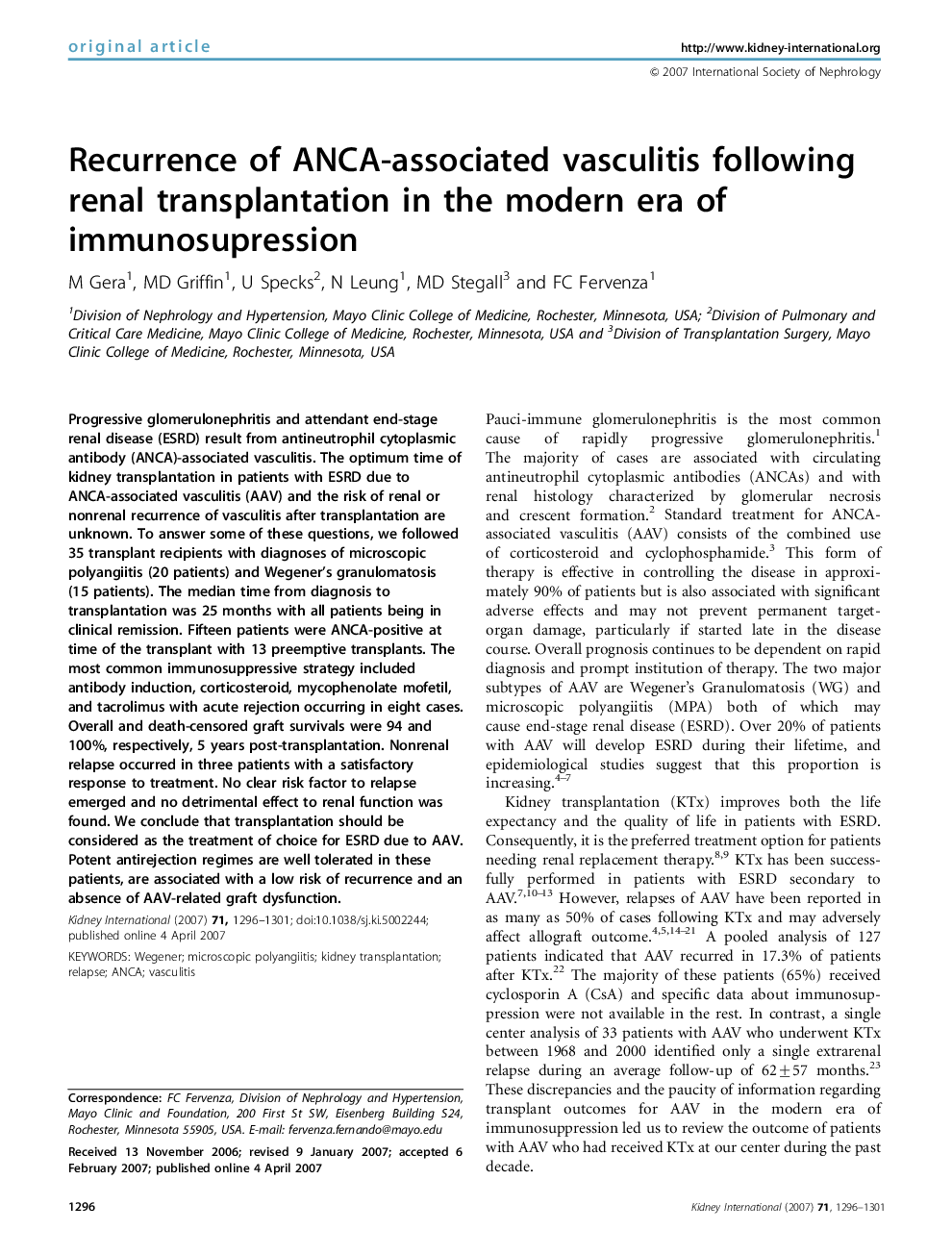| Article ID | Journal | Published Year | Pages | File Type |
|---|---|---|---|---|
| 3887221 | Kidney International | 2007 | 6 Pages |
Progressive glomerulonephritis and attendant end-stage renal disease (ESRD) result from antineutrophil cytoplasmic antibody (ANCA)-associated vasculitis. The optimum time of kidney transplantation in patients with ESRD due to ANCA-associated vasculitis (AAV) and the risk of renal or nonrenal recurrence of vasculitis after transplantation are unknown. To answer some of these questions, we followed 35 transplant recipients with diagnoses of microscopic polyangiitis (20 patients) and Wegener's granulomatosis (15 patients). The median time from diagnosis to transplantation was 25 months with all patients being in clinical remission. Fifteen patients were ANCA-positive at time of the transplant with 13 preemptive transplants. The most common immunosuppressive strategy included antibody induction, corticosteroid, mycophenolate mofetil, and tacrolimus with acute rejection occurring in eight cases. Overall and death-censored graft survivals were 94 and 100%, respectively, 5 years post-transplantation. Nonrenal relapse occurred in three patients with a satisfactory response to treatment. No clear risk factor to relapse emerged and no detrimental effect to renal function was found. We conclude that transplantation should be considered as the treatment of choice for ESRD due to AAV. Potent antirejection regimes are well tolerated in these patients, are associated with a low risk of recurrence and an absence of AAV-related graft dysfunction.
